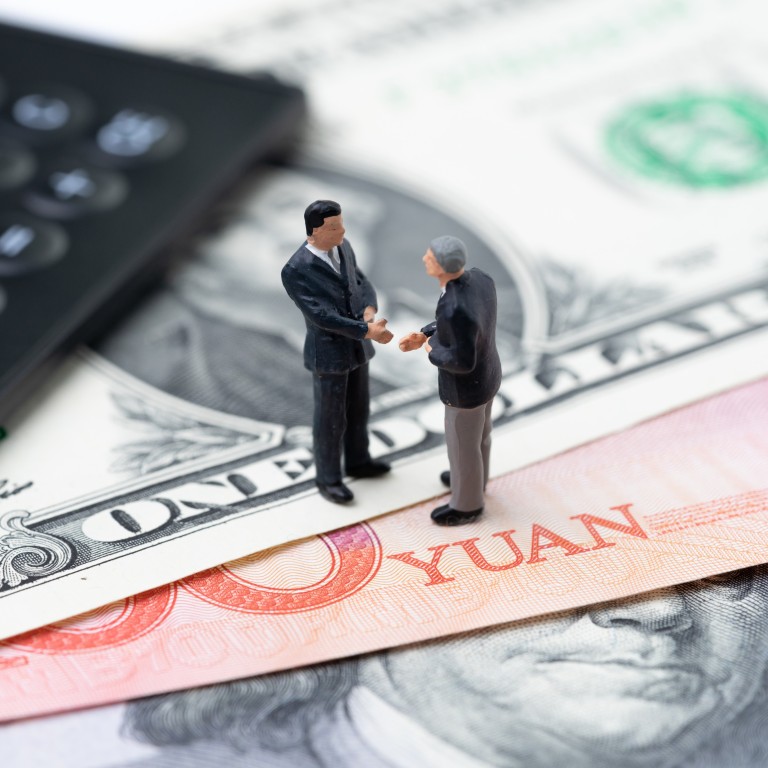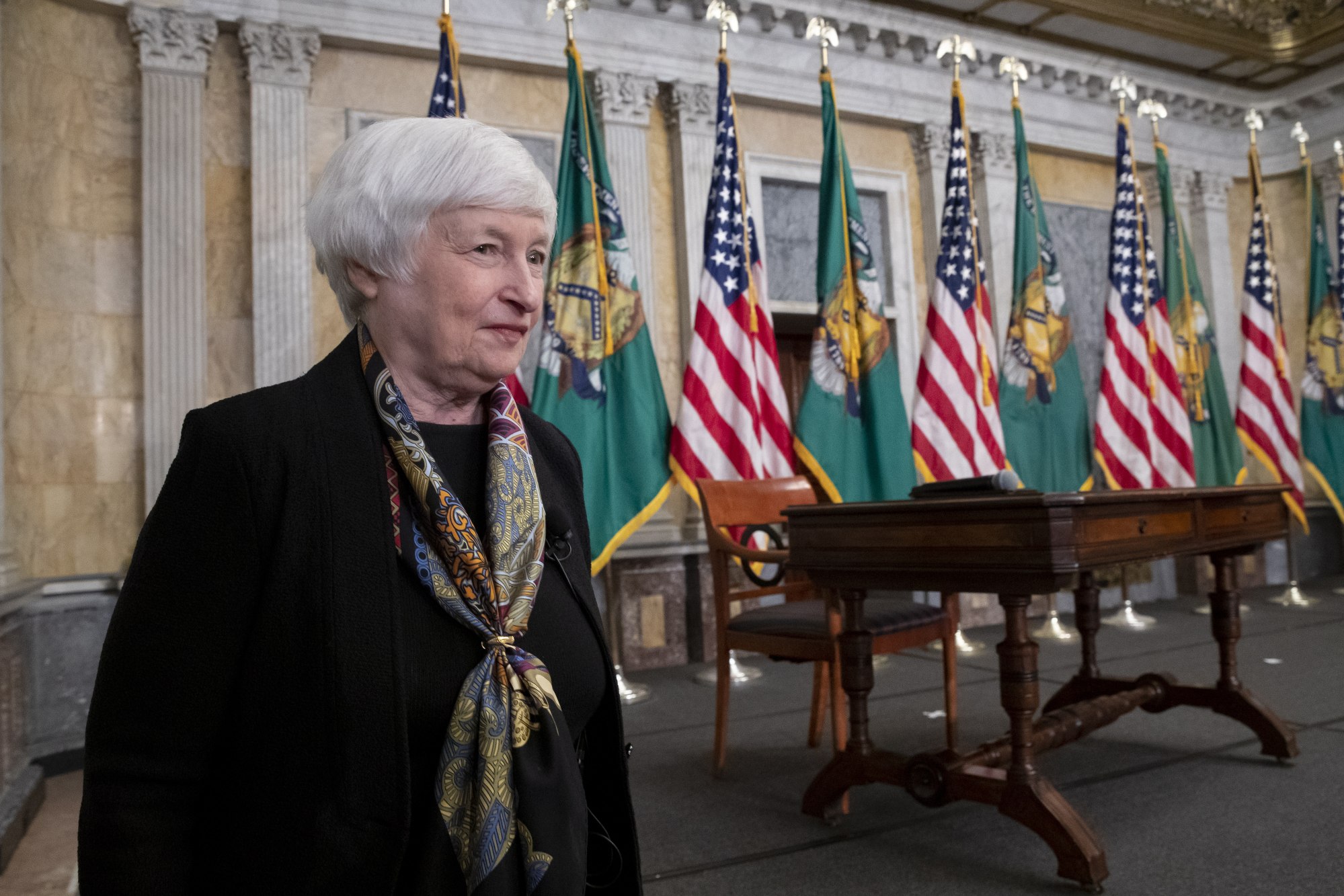
Tight focus is key as US hones policy to curb outbound China investment, report says
- The US intends to enact restrictions that apply ‘only to specific sectors with clear national security risks’, says White House international economics adviser
- A new law making it harder for some chip makers to invest in China has started a tightening of controls over outbound US capital and management expertise
New US outbound investment restrictions – largely directed at China and often garnering strong resistance from the US business community – should avoid being overly broad and ideally fill in gaps not covered by other agencies, laws and regulations, trade experts and a White House official said on Wednesday.
When the Chips and Science Act of 2022 was signed into law last month, it not only provided US$52 billion to bolster the competitiveness of the US semiconductor industry. It also included provisions making it significantly more difficult for chip makers receiving this US funding to invest in China, starting a tightening of controls over outbound US capital and management expertise that could aid Chinese advances in weapons, surveillance and other dual-use technologies.
US President Joe Biden’s administration is still honing its approach, said Peter Harrell, the White House National Security Council’s senior director for international economics and competitiveness. It aims to enact controls that are “narrowly focused”, identify specific gaps in current legal safeguards and apply “only to specific sectors with clear national security risks”, he said.
Harrell added that inwardly focused Washington needed to draw not only on its long-standing experience with inbound investment controls – largely through the often secretive inter-agency Committee on Foreign Investment in the United States (CFIUS) – but also learn from Taiwan and South Korea, which are further along in restricting investments into China.
While some version of an outbound CFIUS is likely as US-China relations worsen and mutual suspicion soars, there is heated debate among lawmakers, companies and, more quietly, the administration, over enforcement, what form it should take and what US agency should oversee it.
Wednesday’s “Sand in the Silicon: Designing an Outbound Investment Mechanism” report released by the Atlantic Council and the Center for a New American Security argues that less is more.
With US$118 billion of American capital invested in China, the world’s second-largest market, and most US firms inclined to stay despite growing geopolitical risks, outbound investment controls should be narrowly targeted, clearly defined and implemented carefully and deliberatively, it said.
US Senate bill would ban Chinese purchases of US farms over national security
“It’s hard to build a plane while you’re simultaneously trying to fly it,” said Sarah Bauerle Danzman, a non-resident Atlantic Council fellow and report co-author along with Centre for a New American Security fellow Emily Kilcrease. “I would just encourage the US government to not go out there and try to control everything.”
At an event to introduce the report, panellists said capital controls tied to semiconductors were a good place to start since they involve a narrowly defined, very specific technology that can be more easily overseen than, say, artificial intelligence, which often seems to mean anything and everything. Restrictions should also be closely coordinated with allies, ideally after creating an effective US example involving the semiconductor industry.
“Outbound investment controls will have the most effect if they’re implemented in large portions of the global economy,” said Kilcrease. “Money is fungible, after all. There’s a high risk that capital from other countries will backfill for US investors if the United States tackles this issue alone.”

Beijing has strongly objected to the administration’s growing focus on teaming up with “like-minded” countries, citing this as evidence of a “Cold War mentality” aimed at preventing China’s rise.
The report’s authors called for the need to distinguish between outbound investments in genuinely sensitive sectors and those that do not threaten US national security and that could support China’s development, strengthen business ties and improve non-strategic supply chains.
“We really do you want to pursue a small yard, high fence type framework,” said Bauerle Danzman, also an associate professor at Indiana University, Bloomington.
Said Kilcrease: “Oftentimes, these discussions get focused on what are the risks of investing abroad. But we also need to think about what are the risks to national security about closing up. It can it very problematic for US technological primacy if we over control it.”
As with most emerging regulatory areas in Washington, outbound capital controls have seen manoeuvring over turf and oversight.
Biden signs order to boost US biomanufacturing and compete with China
Earlier calls for the Office of the US Trade Representative to take the lead have waned amid concern it lacks the staff or heft to do an effective job, with the Defence and Commerce departments still in the mix. The report’s authors cited a preference for the Treasury Department, given its lighter touch and sanctioning authority.
Harrell remained tight-lipped on Wednesday about the administration’s plans or thinking but said he was optimistic on US-European Union coordination in areas where Beijing’s state-led economic clout is challenging the global order.
These include EU rules to address economic coercion – tightened after Beijing threatened Lithuania over its ties with Taiwan – and provisions that view negatively Chinese subsidies in vetting inbound investments.
“The Europeans in their own system have actually grappled with a range of Chinese challenges, actually taking steps, that we have not yet taken here in the United States,” said Harrell, a former US State Department official under President Barack Obama.
“They recognise, just as we recognise, we are still in the early days of an era of geopolitical great power competition. And it is incumbent on us to build a set of tools for the long term.”

